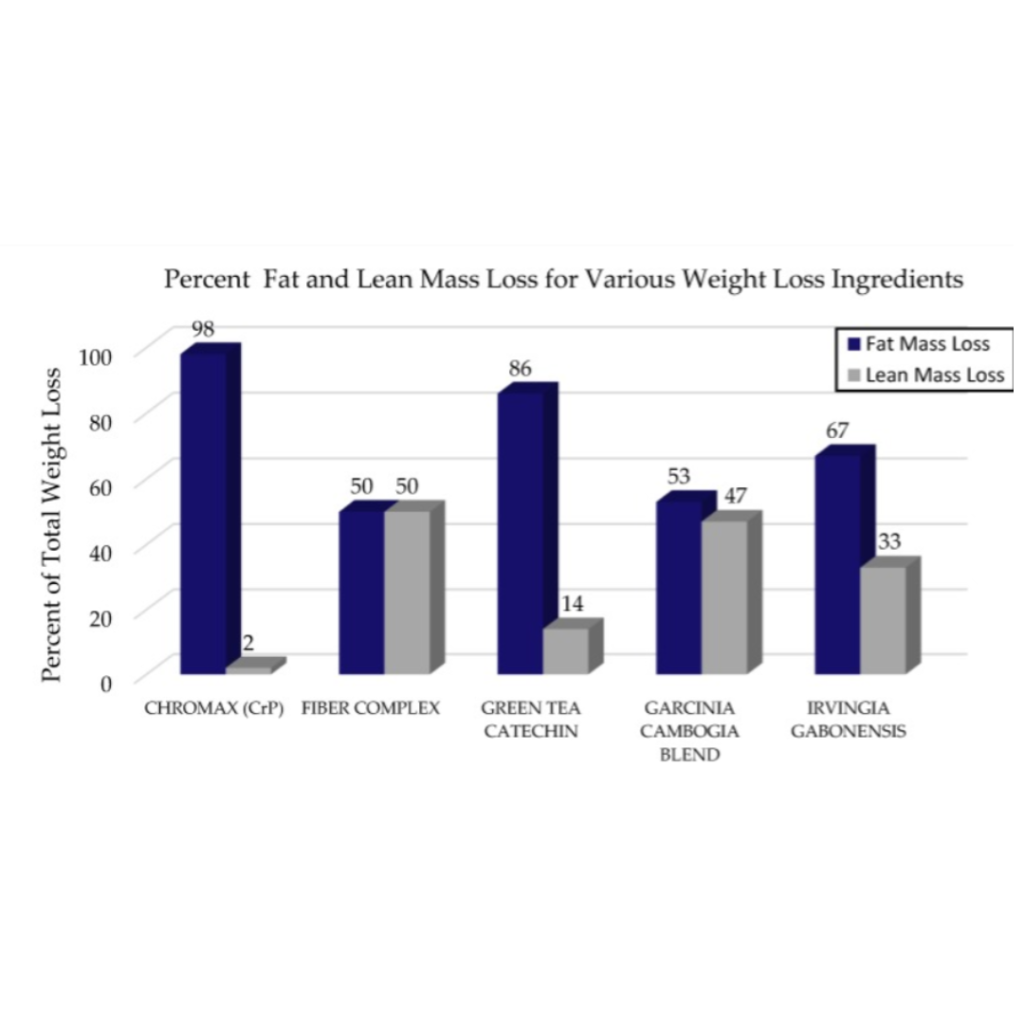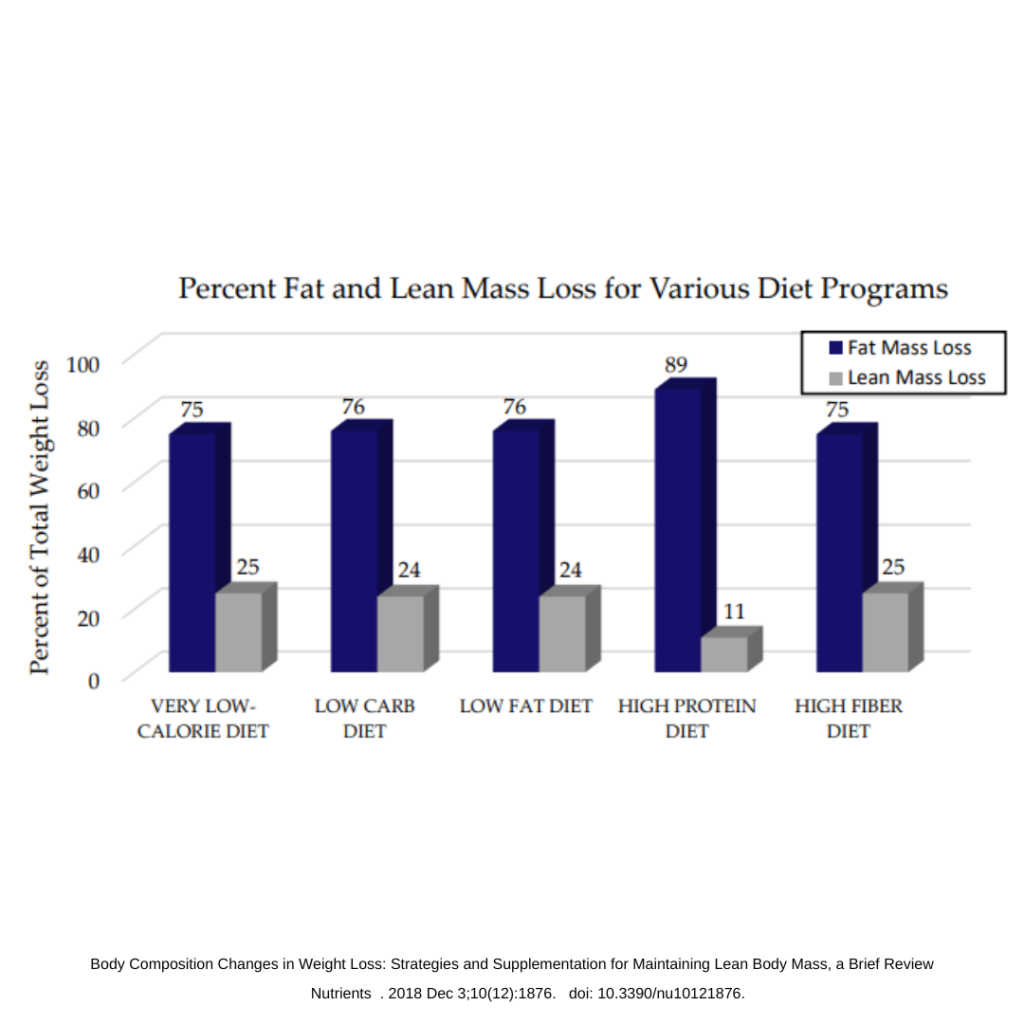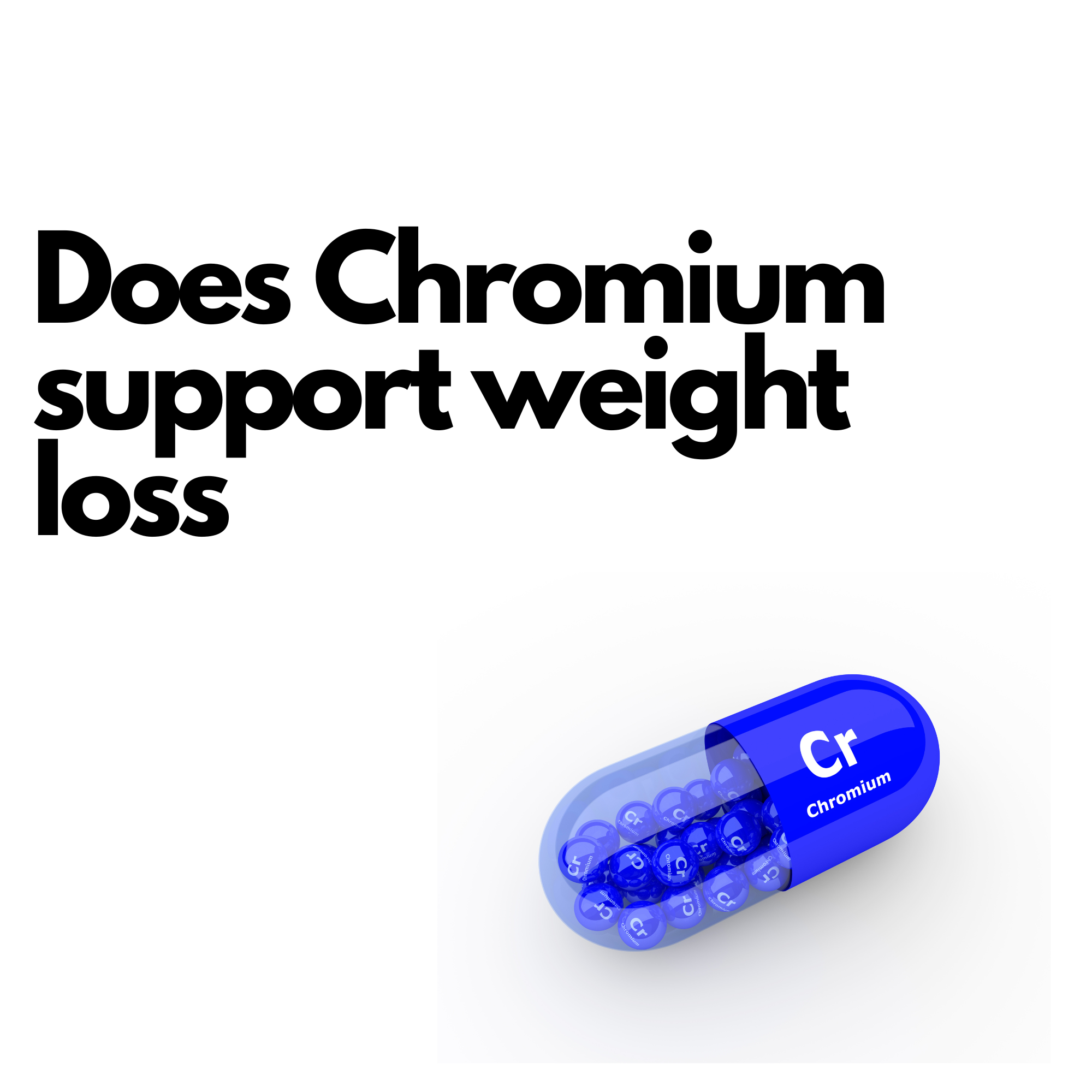The Role of Chromium in the Body: Benefits, Recommendations, and Food Sources
Chromium is an essential trace mineral that plays a crucial role in various physiological processes in the human body.
Although it is required only in small amounts, its impact on health is significant, particularly in glucose metabolism and insulin sensitivity.
This blog will delve into the functions of chromium, its benefits, its potential role in weight loss, recommended intake for adults in the UK, signs of deficiency, and the top foods rich in this vital mineral.
What Does Chromium Do in the Body?
Chromium primarily supports the metabolism of carbohydrates, fats, and proteins by enhancing the action of insulin, a hormone critical for regulating blood sugar levels.
This function is particularly important for maintaining stable blood glucose levels and preventing conditions such as type 2 diabetes.
Additionally, chromium is involved in lipid (fat) metabolism, and chromium supplementation has been linked to improved cholesterol profiles, including reduced levels of low-density lipoprotein (LDL) cholesterol and increased levels of high-density lipoprotein (HDL) cholesterol.
Benefits of Chromium
Potential Role in Weight Loss: Chromium supplements have been marketed for their potential to aid in weight loss, primarily by curbing appetite, reducing cravings, and improving the body’s ability to burn fat. However, the evidence supporting these claims is mixed, and further research is needed to fully understand chromium’s role in weight management.
Improved Insulin Sensitivity: Chromium helps to increase the efficiency of insulin, thereby assisting in the maintenance of normal blood glucose levels. This can be particularly beneficial for individuals with insulin resistance or those at risk of developing type 2 diabetes.
Enhanced Metabolism: By aiding in the breakdown of macronutrients, chromium supports overall metabolic health, which can have a positive effect on energy levels and weight management.
Cardiovascular Health: Chromium may contribute to cardiovascular health by helping to regulate cholesterol levels, reducing the risk of atherosclerosis and other heart-related conditions.
The Role of Chromium
- Chromium is an essential trace mineral involved in carbohydrate, fat and protein metabolism and is combined with picolinic acid to enhance absorption.
- It facilitates the action of insulin, has been shown to improve glycemic control in diabetes, and has been shown to improve body composition by helping to maintain lean body mass (LBM).
- Moreover, enhanced insulin action increases the rate of glucose and amino acid uptake in muscle cells.
Benefits of Chromium
Potential Role in Weight Loss: Chromium supplements have been marketed for their potential to aid in weight loss, primarily by curbing appetite, reducing cravings, and improving the body’s ability to burn fat. However, the evidence supporting these claims is mixed, and further research is needed to fully understand chromium’s role in weight management.
Improved Insulin Sensitivity: Chromium helps to increase the efficiency of insulin, thereby assisting in the maintenance of normal blood glucose levels. This can be particularly beneficial for individuals with insulin resistance or those at risk of developing type 2 diabetes.
Enhanced Metabolism: By aiding in the breakdown of macronutrients, chromium supports overall metabolic health, which can have a positive effect on energy levels and weight management.
Cardiovascular Health: Chromium may contribute to cardiovascular health by helping to regulate cholesterol levels, reducing the risk of atherosclerosis and other heart-related conditions.
The evidence supporting Chromium and Weight Loss
Chromium and Weight Loss
The role of chromium in weight loss has been the subject of much debate. Some studies suggest that chromium picolinate, a popular form of chromium supplement, may help reduce body fat and appetite.
Whilst the evidence is not conclusive, the potential mechanisms behind these effects include improved insulin sensitivity and enhanced metabolism, which may contribute to a reduction in body weight when combined with a healthy diet and regular exercise.
Chromium Weight Loss Studies
Several studies support Chromium’s role in maintaining lean body mass (LBM) during weight loss.
In one study, obese subjects followed a Very Low Calorie Diet (VLCD) for eight weeks followed by 18 weeks of weight maintenance and were supplemented with 200 mcg of chromium picolinate. They showed an increase in lean body mass (LBM) compared to those taking a placebo.
The study concluded that Chromium picolinate, but not chromium yeast, is able to increase lean body mass in obese patients in the maintenance period after a very-low-calorie diet without counteracting the weight loss achieved.
A study of 122 people found a statistically significant improvement in body composition after 90 days of supplementation with 200-400 mcg/day of chromium picolinate in subjects who continued with their normal physical and dietary habits.
Chromium supplementation not only lead to weight loss, but also favourable body composition changes, as the weight lost was 98% fat mass and only 2% lean body mass.
An 8 week study of healthy overweight women, found that taking 1000ug/day chromium picolinate reduced food intake, hunger and cravings.
A 400 mcg dose of chromium taken for 24 weeks by competitive swimmers significantly increased lean mass by 3.5%, decreased fat mass by 4.5%, and decreased body fat percentage by over 6%.
Fat Mass v Lean Body Mass
Chromium picolinate has been shown to improve body composition by maintaining lean body mass.
Maintaining lean body mass is vital for lasting fat loss results.
Focusing on body composition is essential, because even more important than overall weight loss is sustainably losing fat mass (FM) while maintaining lean body mass (LBM).
Most popular commercial weight loss programs are marketed as being able to reduce body weight within the first few weeks; however, of the weight lost, a significant amount includes losses in both LBM and FM, as well as changes in fluid status (water loss).
Much of the early weight loss research were designed around dietary changes that focused on calorie restriction and outcomes focused primarily on total body weight changes as opposed to body composition changes.
This approach was found to be misleading and potentially detrimental to health due to the fact that substantive reductions in lean body mass (LBM) also occurred and weight lost was often quickly regained.
The loss of lean body mass is problematic for a number of reasons, including impacts on health, ability to conduct activities of daily living and potential effects on emotion and psychological states.
The loss of lean body mass impedes long term weight loss success, as it results in a lowered resting energy expenditure/metabolism, fatigue, declines in neuromuscular function, and also increases risk for injury.
Figure 1 Below An overview of various weight loss clinical trials to examine the changes in body composition that occur from using popular weight loss supplements.
Results showed that whilst weight loss was achieved with all supplements, Chromium Picolinate supported both the largest amount of weight loss and the smallest lean mass.

Figure 2 Below An overview of various weight loss clinical trials to examine the changes in body composition that occur from using popular diet programs.
It should be emphasized that each diet program is distinct and contains unique and different exercise programs and diets that are thought to be helpful for weight loss but are not always evaluated by change in body composition.
Results showed that all the popular diet programs examined lead to weight loss, though a large percent of the weight lost during these diet programs comes from a loss in lean body mass (LBM).
For example, the Very Low-Calorie Diet (VLCD) approach is typically used to achieve rapid weight loss and is centred on meal replacement powders and ready to drink beverages. A VLCD typically includes 400–800 k-calories (kcal)/day and is intended for rapid weight loss.

Although the weight loss observed with VLCD treatment is clinically significant, the accompanying decline in LBM may be equally significant and therefore detrimental in terms of a slower metabolism and long term weight loss success.
Key Notes
- Many popular commercial weight loss programs are marketed as being able to reduce body weight within a few weeks; however, of the weight lost, a significant amount includes losses in both LBM and FM, and water weight and weight lost is often quickly regained
- Loss of lean body mass makes lasting weight loss unsustainable as it results in slower metabolism and causes fatigue
- Chromium picolinate has been shown to improve body composition by maintaining lean body mass.
Top 10 Foods Chromium Rich Foods
Chromium is naturally found in a variety of foods, including meats, bread, grains, fruits and vegetables. However, the exact content can vary based on factors such as soil quality and food processing methods which can often negate nutrients profiles.
The amount of chromium in meat depends on the animals diet and the amount in fruit and vegetables depends on the amount of chromium in the soil and water in which they are grown.
Plus, dietary chromium absorption is low, ranging from about 0.4% – 2.5%. Chromium picolinate, typically found in supplements, is absorbed better.
Most dairy products and foods high in sugars (sucrose and fructose) are typically low in chromium.
Below are the top 10 foods that are good sources of chromium, along with the approximate amount of chromium they contain per 100 grams:
- Broccoli: 11 micrograms
- Grape Juice: 8 micrograms (per 240 ml serving)
- Whole Wheat Bread: 6 micrograms
- Oats: 12 micrograms
- Barley: 13 micrograms
- Green Beans: 6 micrograms
- Turkey Breast: 2 micrograms
- Beef: 2 micrograms
- Tomatoes: 3 micrograms
- Lettuce: 3 micrograms
Incorporating these foods into your diet can help ensure adequate chromium intake, supporting overall metabolic health.
Signs of Chromium Deficiency
Chromium deficiency, although rare, can lead to several health issues, particularly those related to impaired glucose metabolism. Common signs of chromium deficiency can include:
- Impaired glucose tolerance
- Elevated blood glucose levels
- Increased insulin resistance
- Fatigue
- Anxiety
- Poor skin health
In severe cases, chromium deficiency can contribute to the development of diabetes and cardiovascular diseases.
Recommended Chromium Supplements
Conclusion
Chromium is a trace mineral that plays a vital role in maintaining blood glucose levels, supporting metabolism, and potentially aiding in weight management. While deficiency is rare, it can lead to significant health issues, particularly related to insulin resistance. To maintain optimal health, it is important to consume a diet rich in chromium-containing foods, particularly for those at risk of glucose metabolism disorders. As with any nutrient, balance is key, and it is generally advisable to meet your nutrients needs through diet rather than supplements and only top up where deficient.
Supplements are not intended to replace a healthy diet and balanced lifestyle. Chromium supplements can interact with certain medications. Always consult your GP before taking supplements.
References
- European Food Safety Authority. (2014). Scientific Opinion on Dietary Reference Values for chromium. EFSA Journal, 12(10), 3845.
- Chromium related health claims | EFSA (europa.eu)
- National Institutes of Health. (2021). Chromium – Fact Sheet for Health Professionals.
- Anderson, R. A. (1998). Chromium, glucose intolerance and diabetes. Journal of the American College of Nutrition, 17(6), 548-555.
- Vitamins and minerals – Others – NHS (www.nhs.uk)
- Nutrients 2018, 10, 1876; doi:10.3390/nu10121876 www.mdpi.com/journal/nutrients Nutrients 2018, 10, 1876 2 of 10
- Body Composition Changes in Weight Loss: Strategies and Supplementation for Maintaining Lean Body Mass, a Brief Review Nutrients . 2018 Dec 3;10(12):1876. doi: 10.3390/nu10121876.
- Kaats, G.R.; Blum, K.; Fisher, J.A.; Adelman, J.A. Effects of chromium picolinate supplementation on body composition: A randomized, double-masked, placebo-controlled study. Curr. Ther. Res. 1996, 57, 747.
- Kaats, G.R.; Blum, K.; Pullin, D.; Keith, S.C.; Wood, R. A randomized, double-masked, placebo-controlled study of the effects of chromium picolinate supplementation on body composition: A replication and extension of a previous study. Curr. Ther. Res. 1998, 59, 379–388
- Bhadori, B.; Wallner, S.; Schneider, H.; Wascher, T.C.; Toplak, H. Effect of chromium yeast and chromium picolinate on body composition of obese, non-diabetic patients during and after a formula diet. Acta Med. Austriaca 1997, 24, 185–187.




